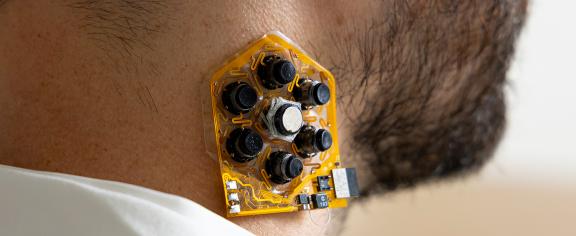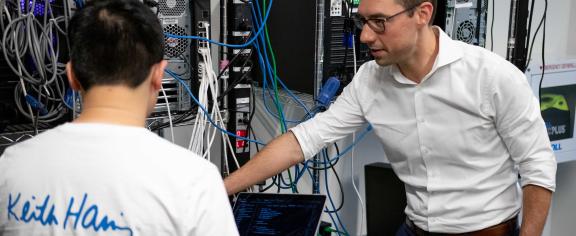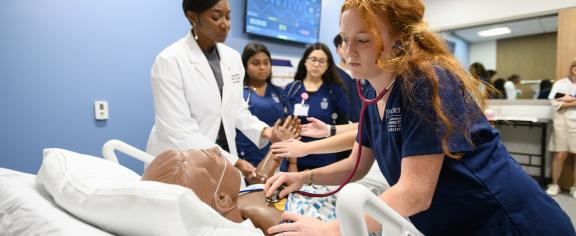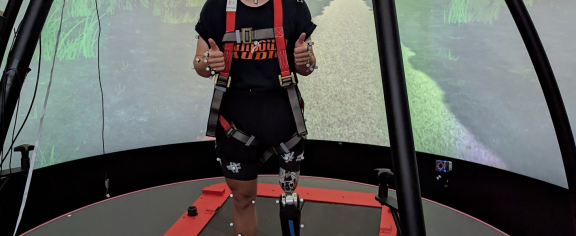2026-02-02
When Postdoctoral Research Fellow Hannah Youngblood’s work on exfoliation glaucoma (XFG) was featured by the BrightFocus Foundation, it caught the attention of Jennifer Rucker, an Alabama resident who was diagnosed with XFG several years ago.
2026-01-28
Biomedical engineer Chethan Pandarinath collaborates with neurosurgeons and scientists across the country in a massive project to help patients with ALS or stroke damage reconnect with the world.
2026-01-22
From smart textiles to brain-computer links, Georgia Tech engineers are designing wearables that connect humans and machines more closely than ever to sense, respond, and heal.
2026-01-08
By studying the way social forces shape health inequalities, medical sociology helps address how health and illness extend beyond the body and into every aspect of people’s lives.
2025-12-03
With the help of a contract award for up to $12 million from ARPA-H, a team of researchers led by the School of Cybersecurity and Privacy at will begin developing an advanced cybersecurity platform to protect hospitals.
2025-11-24
By uniting expertise and resources, Georgia’s leading institutions are creating practical solutions to improve health outcomes across the state.
2025-11-04
Inspired by NASA technology, Georgia Tech alumni launched Deleon—a startup using biochemical data to advance preventive health, backed by CREATE-X.
2025-10-23
Georgia Tech and the Nell Hodgson Woodruff School of Nursing at Emory University are partnering to develop a pipeline that prepares more local nurses to meet workforce demands.
2025-10-16
Two years into a $49.5 million cancer-mapping project, researchers are opening the door to new kinds of tests that could alert doctors to multiple kinds of cancer when they’re most treatable.
2025-09-30
Born with a congenital limb disorder, Wallace wants to use his own experience to develop new prosthetics.









